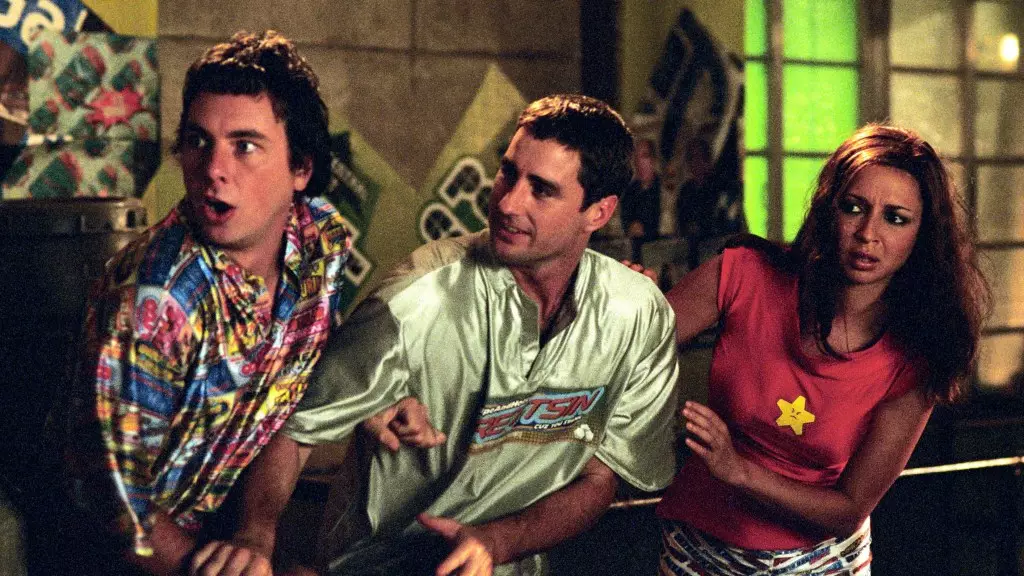Since its release in 2005, Luke Wilson’s film _Idiocracy_ has achieved an unexpected status in contemporary pop culture. Initially dismissed by 20th Century Fox, which limited its theatrical reach to a mere three screens, the film grossed only $495,652. However, over the years, it has morphed into a cult classic, resonating deeply with audiences who find its satirical depiction of a dystopian future alarmingly relevant. The film portrays a scenario where human intelligence has sharply decreased, leaving Wilson’s character, Joe Bowers, as the “smartest man in the world” after awakening from a 500-year cryogenic sleep. Its relevance to current societal conditions and political climates cannot be overstated.
The film’s premise—highlighting a society overwhelmed by consumerism, sensationalism, and a general decline in intellectualism—was overshadowed upon release, yet it now stands as a stark commentary on contemporary issues. The comparison of President Camacho, portrayed by Terry Crews—a larger-than-life character with a flair for the absurd—with real-life political figures, such as Donald Trump, underscores how _Idiocracy_ inadvertently predicts and critiques the trajectory of modern governance. Wilson’s reflections on his surprise at the film’s endurance illuminate his acknowledgment of the unfortunate implications of its satire.
In light of the film’s resurgence in popularity, Wilson has expressed an ongoing desire to collaborate with co-writer and director Mike Judge on a sequel. In conversations with Business Insider, he reiterated his enthusiasm: “I’m always pitching to Mike.” His vision includes a narrative where Joe Bowers, along with Camacho and actor Dax Shepard’s character, return to a contemporary society to navigate the absurdities that have become more pronounced in their absence. Wilson’s eagerness points to an engaging premise that could explore how characters from a satirical future redress a bewildering present that mirrors some of the social dysfunctions depicted in the original narrative.
Given the film’s initial failure at the box office, Wilson’s consistent advocacy for a follow-up suggests that the film has transcended its commercial limitations to occupy a significant place in the public consciousness. The dynamic between Wilson and Judge allows for a creative reunion that could yield both humorous and insightful commentary on current affairs.
_Cult classics_ often offer more than nostalgia; they serve as mirrors reflecting societal issues. _Idiocracy_ has become a frequently referenced film during electoral cycles—often pointed to as a cautionary tale warning against ignorance and anti-intellectualism. Kevin Feige, a prominent figure in modern cinema, remarked on the importance of films that challenge viewers to engage critically with their realities. Wilson’s experiences illustrate this need for intelligent satire that prompts discussions about the direction society is heading.
The film’s surprising longevity may lie in its innate ability to resonate during times of political and social upheaval, and its revival is largely attributed to the ongoing debates about misinformation and the erosion of critical thinking in public discourse. Wilson’s observation about how frequently fans approach him about _Idiocracy_ suggests that it has infiltrated collective memory as a reference point for understanding current dilemmas.
Furthermore, the interest from actors like Terry Crews in a sequel enhances the film’s cultural impact. As Crews has humorously attempted to pressure Judge for a continuation, the gradual momentum suggests an audience excited for an updated narrative reflecting today’s complexities. Such a sequel could serve as a timely critique of our reality, transforming the satirical lens of the original into a formidable tool for social commentary.
The Future of _Idiocracy_
As the conversation surrounding a potential sequel persists, the implications of _Idiocracy_ on both the film industry and societal awareness remain profound. A new installment could harness the original’s premise while evolving to address pressing themes of our time—exploring not just the consequences of societal apathy, but also the resilience of human intellect and creativity in the face of absurdity.
Wilson’s commitment to pitching ideas to Judge demonstrates a proactive approach to storytelling that recognizes the importance of satire and humor in illuminating uncomfortable truths. As we navigate an increasingly complex world, _Idiocracy_ stands as both a warning and a rallying cry for a future that prioritizes critical thought, dialogue, and intelligence over ignorance and complacency. The film’s revival might be better than anyone anticipated, but its journey is far from over.

